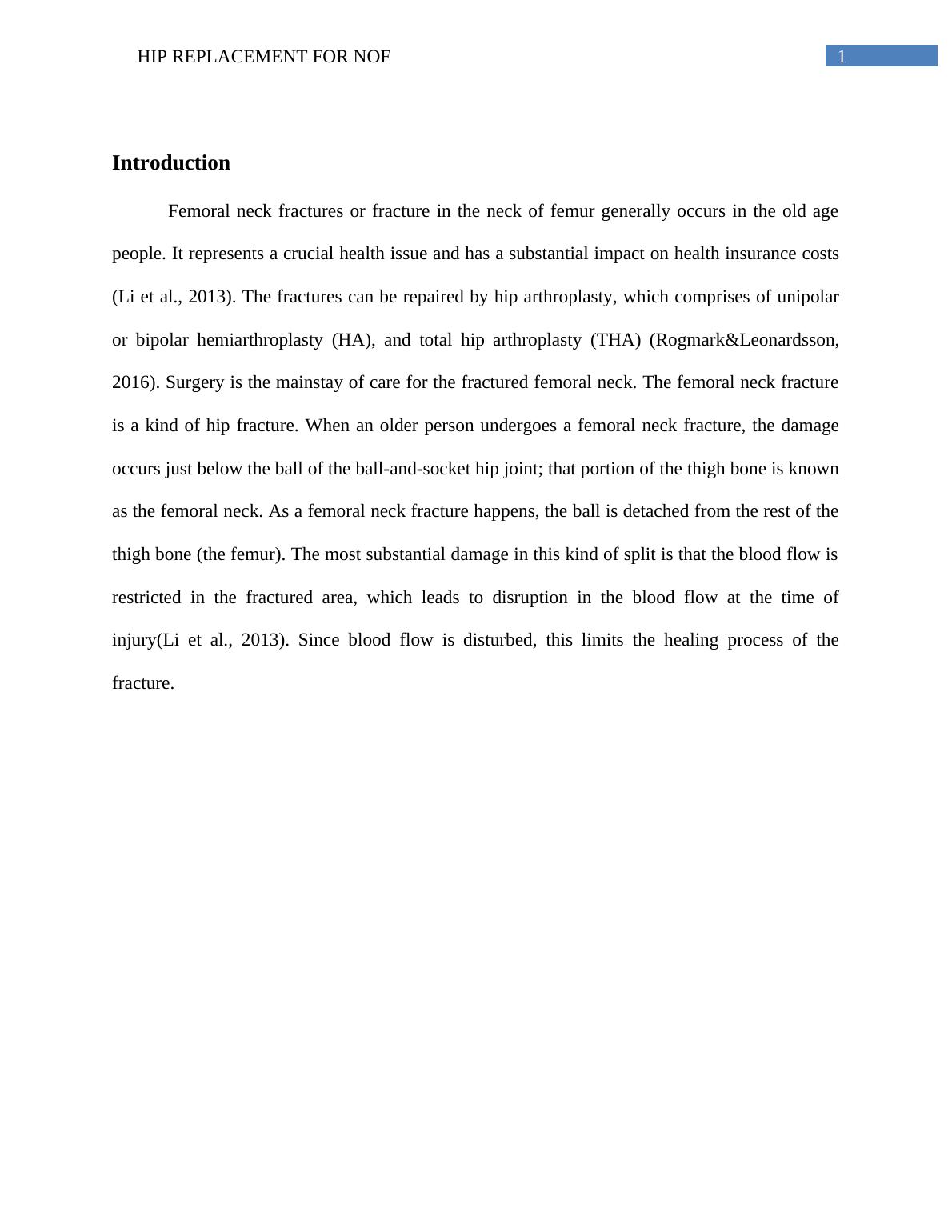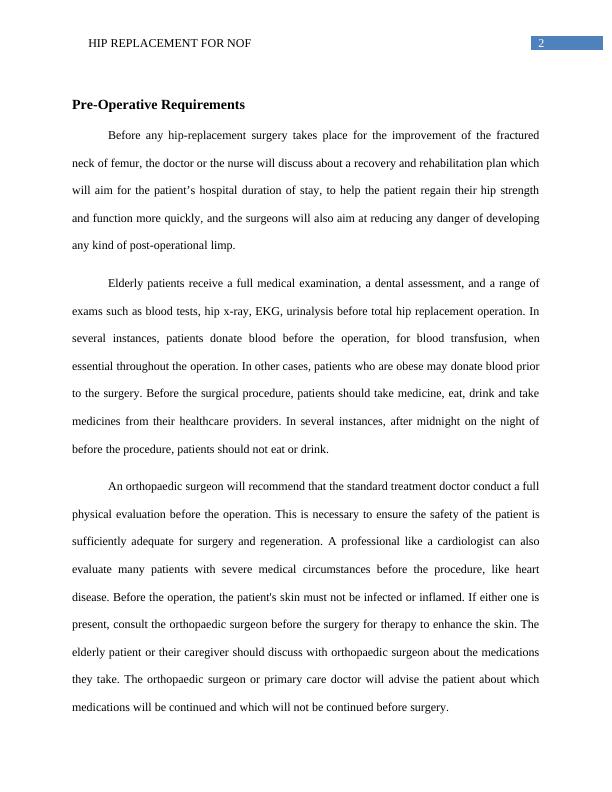Hip Replacement for NOF
Added on 2022-12-27
9 Pages2302 Words92 Views
End of preview
Want to access all the pages? Upload your documents or become a member.
Nursing Care During Total Hip Replacement
|8
|2384
|44
NUR2206 Integrated Nursing Practice
|11
|3140
|52
Gerontological Aged Care Rehabilitation Nursing for Elderly Patients with Hip Replacement Surgery
|13
|3843
|396
Hypertension and Depression: Pathophysiology, Nursing Interventions, and Medications
|12
|2703
|1
Preventing Deep Vein Thrombosis in Total Knee Replacement Patients
|10
|1720
|269
Nursing- Preoperative and Postoperative Management Article 2022
|8
|2204
|7


